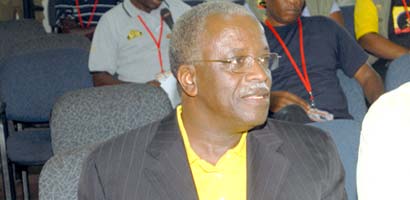Analysis
Victory in secret tapes trial

Some of the leaked tapes allegedly had links to Ex-PM Amama Mbabazi’s youth supporters
The ruling by High Court Justice Lydia Mugambe has been hailed by media rights activists and human rights lawyers as a victory for the public because it upholds principles of openness enshrined in Uganda’s 1995 constitution but also required in a free and democratic society.
On June 25, the State alleged that Poteri breached the law when he allegedly leaked official secrets. The highly publicised tapes revealed how the Inspector General of Police Kale Kayihura had allegedly recorded telephone conversations with opposition politician Sulaiman Kidandala as well as with alleged youth supporters of former Prime Minister Amama Mbabazi.
But an application for a Judicial Review into Buchyana’s ruling to hold proceedings in secrecy was filed in August 2014, by the Uganda Court Reporters Association Ltd against the Attorney General in the High Court of Uganda.
The reporters were represented by public interest advocates Isaac Ssemakadde and Catherine Anite of the Centre for Legal Aid and Peter Kibirango of M/S. R.M Ruhinda and Co. Advocates.
Lady Justice Lydia Mugambe, who presided over the review, has overturned the ruling of her junior at Buganda road court Lillian Buchyana saying the junior judge acted unreasonably and unfairly in the process of making her ruling.
The State had cited morality, public order, and national security as reasons upon which they based their application for secret proceedings, but they did not back up their application with evidence as required.
Justice Mugambe also faulted her junior for failing to weigh the pros and cons of holding closed-door proceeding which contravenes principles of fairness and justice in a free and democratic society.
Mugambe said: “For this, she (Buchyana) committed an illegality, was irrational and her decision is clothed in procedural impropriety.”
Mugambe’s ruling reads: “Based on the above findings, I hereby quash the ruling/decision of the Learned Trial Magistrate of 25 June 2014, ordering in-camera proceedings in Criminal Case No. 303 of 2014 against Poteri Ronald.”
Mugambe quoted several judgements made here and abroad to make her case for open justice.
She cited a ruling by South African Justices Ernest Mosenke and Muhammed Yacoob, who argued that the mere fact that documents in a court record carry a classification does not oust the jurisdiction of the Court to decide whether they should be protected from disclosure from the media and public.
In Maj. General David Tinyefuza vs. Attorney General, Constitutional Petition No. 1 of 1996, the Justices of the Court of Appeal relying on Field’s Law of Evidence, explained that it is not enough for the officer at the head of the Department or Counsel for the State to claim privilege.
Mugambe argued that: “The Court has a duty to establish that privilege applies. It is possible for the court to find that the privilege does not apply depending on the facts of the case.”
Robert Ssempala, the coordinator of Human Rights Network for Journalists (HRNJ-Uganda), hailed the decision of Justice Mugambe as a big victory for the media and the general public.
“This is a big victory for the media and the public because many times people in positions of power tend to close out the media and thereby deny the public very vital information which is an abuse of the democratic principle of free access to information.”
Catherine Anite, one of the lawyers who petitioned the high court, also hailed the ruling as a landmark judgement and only the second of its kind on the African continent after the first one in South Africa.
Anite said: “This ruling has emphasized the importance of the media especially court reporters as watchdogs of justice.” Anite adds that the ruling recognises the vital role in ensuring that the principle of open justice is observed. It also acknowledges the fact that journalists are the eyes and ears of the public and help to keep the public knowledgeable about court proceedings.”
Comments


















